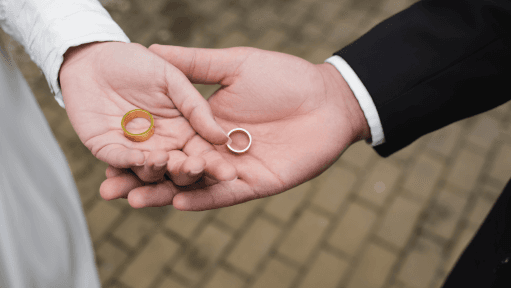
All You Need to Know About 'Mahr': Understanding the Legal Limits of Dowry Payments
In the multi-cultural landscape of the United Arab Emirates (UAE), where tradition intersects with modernity, one practice that continues to spark debate is the tradition of dowry, known locally as "mahr."
As discussions on cultural practices and legal compliance gain momentum, the general public grapples with the question of whether the dowry system aligns with the UAE's evolving legal frameworks.
Cultural Tradition vs Legal Compliance
The dowry system, deeply rooted in tradition, is a customary practice where the groom provides a financial or material gift to the bride as a symbol of commitment and support.
While traditionally prevalent in many societies, including parts of the UAE, its legality and compliance with contemporary laws are under scrutiny.
Under Islamic law, the payment of mahr is a fundamental aspect of marriage contracts, with specific guidelines outlined in Sharia. However, interpretations vary, and the implementation of dowry practices can differ across cultural and familial traditions.
Law on Determining Dowry and Wedding Expenses in the UAE
- Federal Law No. 21 of 1997 determines the dowry in marriage contracts and related expenses in the UAE. It aims to regulate the practice of determining dowry amounts in marriage contracts and to establish guidelines regarding related wedding expenses within the UAE.In a marriage contract, the dowry given in advance cannot exceed Dh20,000, and the deferred dowry cannot be more than Dh30,000.
- Any disputes over dowry amounts above these limits won't be heard in court, even if the case was filed before this law came into effect.
- Weddings can only last for one day.
- No more than nine camels can be slaughtered at wedding ceremonies.
- Anyone breaking this law loses the marriage grant set by Federal Law No. (47) of 1992.
- Breaking the rules about camels at weddings can result in a fine of Dh500,000.
- The Minister of Interior and Minister of Justice, Islamic Affairs, and Endowments are responsible for enforcing this law and can make necessary decisions about it.
- Any laws or provisions that go against this law are cancelled.
- This law will be published officially and becomes effective immediately upon publication.
Legal Frameworks and Debates
In recent years, the UAE has witnessed significant legal reforms aimed at promoting gender equality and protecting women's rights.
The UAE Personal Status Law, for instance, outlines provisions related to marriage contracts, including stipulations regarding mahr.
Critics argue that the dowry system, if not regulated effectively, can perpetuate financial burdens on grooms and reinforce gender inequalities.
They advocate for stricter legal oversight to prevent exploitation and ensure that dowry payments are reasonable and consensual.
Conversely, proponents of the dowry system view it as a cultural tradition that strengthens familial bonds and reflects the groom's commitment to providing for his bride.
They emphasise the importance of preserving cultural heritage while respecting individual freedoms and choices.
Legal Experts' Perspectives
Legal experts weigh in on the debate, highlighting the importance of aligning cultural practices with legal frameworks to uphold fundamental rights and prevent exploitation.
They emphasise the need for clarity in defining dowry obligations within marriage contracts, ensuring transparency and consent from all parties involved.
Furthermore, legal scholars stress the significance of ongoing dialogue and collaboration between religious authorities, legal institutions and community leaders to address the complexities surrounding the dowry system effectively.
Moving Forward
As discussions on the legality of the dowry system in the UAE continue, stakeholders advocate for a balanced approach that respects cultural traditions while safeguarding individual rights and promoting gender equality.
The evolving legal landscape presents opportunities for constructive dialogue and policy reforms aimed at addressing societal norms in alignment with contemporary values and principles.
For any enquiries or information, contact ask@tlr.ae or call us on +971 52 644 3004. Follow The Law Reporters on WhatsApp Channels.